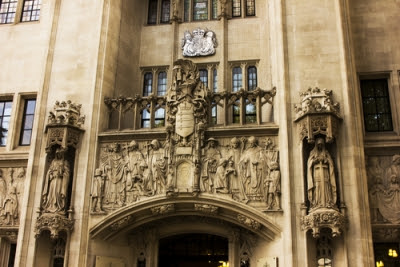Case will have repercussions for countries that still carry out executions and those that recognise jurisdiction of privy council
5 British judges will this week consider whether a prisoner who may be mentally ill should remain on death row after a Caribbean court convicted him of murdering another inmate.
Although Jay Chandler is unlikely to meet the hangman in Port of Spain, the case will have international repercussions for countries that still carry out executions and those that recognise the far-reaching jurisdiction of the UK's judicial committee of the privy council (JCPC).
The hearing in London on Tuesday comes amid concern over the spiralling murder rate in Trinidad and Tobago, which has reinvigorated calls for the death penalty to be enforced. Last year, 494 people were murdered in the Commonwealth state, which has not hanged anyone since 1999.
Trinidad is 1 of more than 30 overseas territories, dependencies and Commonwealth states that rely on the JCPC as their ultimate court of appeal, sending cases from around the world to hearings before justices of the UK's supreme court in Westminster.
A 1993 landmark ruling at the privy council in the case of 2 Jamaican prisoners, Pratt and Morgan, who were on death row, established the principle that delays of more than 5 years between sentence and execution are degrading and inhuman punishment. That decision resulted in hundreds of inmates having death sentences commuted to life imprisonment.
More recent privy council cases have established legal precedents against imposing capital punishment on those who have intellectual disabilities such as extremely low IQs.
Trinidad and Tobago, with more than 30 people on death row, is 1 of only 2 Caribbean countries (the other being Barbados) that retains a mandatory death penalty for murder - a hangover from British colonial rule.
Chandler, who is 40, was sentenced to death in 2011. He had been convicted of stabbing another prisoner, Kern Phillip, with a homemade knife in October 2004. The 2 men were said to have quarrelled during visiting hours at the Remand Yard prison in Arouca, Trinidad.
Chandler was seen chasing Phillip across the compound. The victim died from his injuries in the prison's infirmary. Postmortem examination showed that his heart had been punctured. Chandler has denied having the weapon or attacking Phillip.
Lawyers for Chandler will present a report from a forensic psychologist who has diagnosed him as suffering from episodes of psychosis - fresh evidence, it is argued, that casts doubt on the safety of his conviction and sentence. The appeal will be heard by Lords Kerr, Sumption, Reed, Carnwath and Lloyd-Jones.
Saul Lehrfreund, co-executive director of the Death Penalty Project, based at the London law firm Simons Muirhead and Burton, who visited Chandler, on death row in October, said: "This is yet another example of someone being sentenced to death who has never been assessed by mental health experts.
"Without proper assessments, people who are potentially mentally disabled inevitably slip through the net and it is all too common to find prisoners with severe mental health issues on death row. The mandatory death penalty is of great concern as the judge has no discretion over whether the death penalty should be imposed. Trinidad and Tobago is one of the last countries in the Caribbean to retain this colonial relic, in violation of its international obligations.
"The backdrop to this case is the clear prohibition on the execution of individuals with mental disorder under international law. The legal safeguards are there - the problem is with their implementation in practice."
Last month the release of a confidential prime ministerial file to the National Archives revealed that in the 1970s the government had to send a British gunboat when politicians defied local courts' capital punishment rulings.
The UK's abolition of the death penalty in 1969 was not extended to British overseas dependent territories for decades and the disparity caused repeated political tension.
In December 1980 the then foreign secretary, Lord Carrington, wrote a letter to the prime minister, Margaret Thatcher, explaining: "Local feeling in those territories which retain the death penalty is generally strongly in favour of its use. In 1978 a frigate was sent to the British Virgin Islands in expectation of disturbances when the governor decided to commute [the death sentence]."
The file shows Douglas Hurd, who later became foreign secretary, believed reform was needed. He wrote to John Major, by then prime minister, saying something had to be done because there were 12 capital punishments cases pending and in the Caymans a "new gallows had just been completed and graves have been dug".
In 1991 the British government extended an order in council to its Caribbean territories abolishing capital punishment for murder. Independent Caribbean Commonwealth countries, such as Trinidad and Tobago, were not affected by that legal change and retain the death penalty.
Source: The Guardian, Owen Bowcott, January 15, 2018
⚑ | Report an error, an omission, a typo; suggest a story or a new angle to an existing story; submit a piece, a comment; recommend a resource; contact the webmaster, contact us:
deathpenaltynews@gmail.com.
Opposed to Capital Punishment? Help us keep this blog up and running! DONATE!
"One is absolutely sickened, not by the crimes that the wicked have committed,
but by the punishments that the good have inflicted." -- Oscar Wilde












